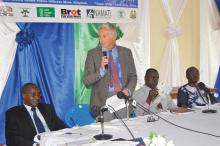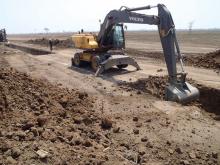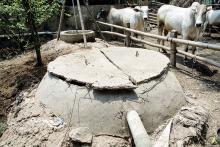Land Library
Welcome to the Land Portal Library. Explore our vast collection of open-access resources (over 74,000) including reports, journal articles, research papers, peer-reviewed publications, legal documents, videos and much more.
/ library resources
Showing items 1 through 9 of 25.Sierra Leone is one of the least developed countries in the world and is still recovering from a civil war that ended in 2002.
The buying up of farmland by international investors is viewed highly critically. However, sweeping judgements could be inappropriate, as our author demonstrates with survey results from Ethiopia and Uganda.
At Shared Assets we believe that land is a common resource and that it should be made to work for everyone. This means using land to generate social, environmental, and economic value.
This report explores some of the key issues to consider when supporting new land-based social enterprises. The findings are drawn from interviews with 13 representatives from social enterprises who received direct technical, business and training support from Shared Assets between 2013-15.
This report contains five case studies, each exploring how a different community-led innovation in the UK approached the challenge of scaling up. It supports our Scaling Land Based Social Enterprise : Decision Making Toolkit. The work was funded by the Calouste Gulbenkian Foundation.
This publication explores what scaling ‘well’ means for social innovators. It is based on our research into how social innovations across a range of sectors have approached the challenge of scaling up. It supports our Scaling Land Based Social Enterprise : Decision Making Toolkit.
This report was commissioned by Natural Resources Wales to better understand the woodland social enterprise sector in Wales. Findings include the landscape of the sector, what enterprises are doing, and what potential there is for the sector to grow.
Last year Angola earned 48 billion US dollars from petroleum. Yet the country that was once Africa’s largest agricultural producer is reduced to importing food. Now the government and private investors want to develop the agricultural sector, in the hope that Angola could become a new Brazil.
The livelihoods of many rural dwellers are dependent on having secure and equitable access to land. Tenure security is also a prerequisite for sustainable land management. The massive interest of commercial investors has increased the pressure on land globally.









